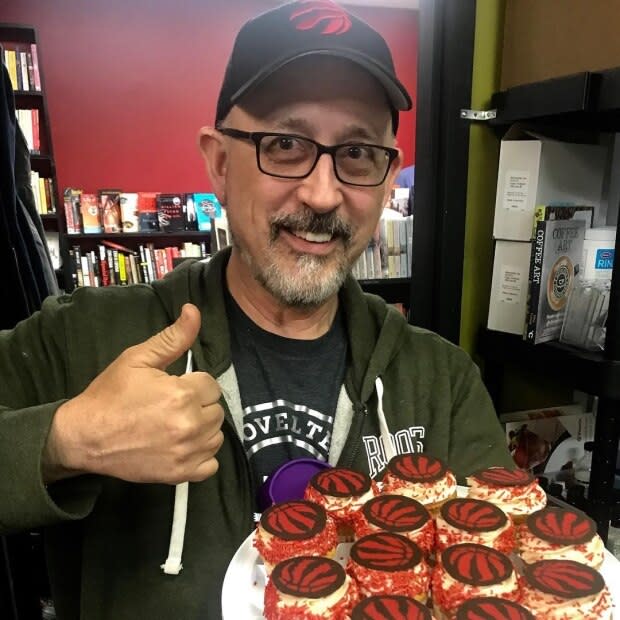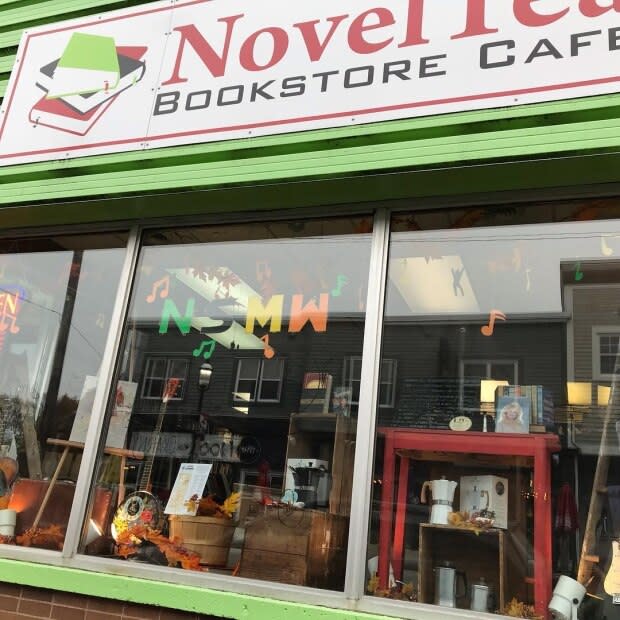Small-town businesses morphing to survive new pandemic reality
When you've designed your business around coffee, baked treats, old books and art, the model relies on people not only gathering, but lingering.
Which is why NovelTea Bookstore Cafe in Truro, N.S., has been scrambling to adapt to a world where people getting together is not only discouraged, but outlawed during the COVID-19 pandemic.
"We're trying to adjust as quickly as we can," said co-owner Keith Hazzard.
The seven-day-a-week business closed briefly last month, then reopened as a takeout-only café and bakery, with what Hazzard described as "severely reduced hours and severely reduced menu."
"We've come back and we've just opened two or three days a week for a takeout and delivery," he said. "So it's been a whole change to our model of doing business."

Before the pandemic, half the café's business was eat-in, with people often staying for an hour or two and some even calling it their "second office." Cutting back has meant laying off staff and greatly reduced revenue.
"It'll be a fraction of what we would normally do," Hazzard said.
Down the street, Andrea Munroe is also adapting her business to the new reality. The owner of Enchanted Forest, a toy store and children's clothing shop, has shifted to online sales, after a brief closure to reassess and regroup.
"I didn't have an e-commerce website set up when I closed my business," said Munroe. "And so it's kind of a mad dash to scramble and build one and try to facilitate those sales in the midst of a lot of uncertainty."
The shift has allowed Munroe to generate some revenue and remain connected to her customers.
"I'm very grateful that we do have the sales," she said. "I feel so blessed because our customers and our community have really rallied."
But online sales have not entirely replaced the money the shop was generating as a bricks-and-mortar operation. Munroe figures her business is about 60 percent of what it was before the pandemic hit Nova Scotia.

Around the corner, Alicia Simms isn't as fortunate. Her two businesses, Rolling Sea Tattooery and Truro Buzz, are both essentially shut down.
Nova Scotia's chief medical officer of health, Robert Strang, ordered tattoo shops closed as a way to try to stem the spread of the COVID-19 virus.
"My tattoo business, obviously we were ordered to close on March 19th and there's no income coming in from that," said Simms.
"And my other business, Truro Buzz, is a media promotions company. Most of the businesses have been shut down and the events have been cancelled. So everything I had in my calendar for the next couple of months was effectively cancelled and just completely dried up."
'I still haven't been able to even apply for the relief'
Simms is instead working for free, using her online newsletter and Facebook page to promote local businesses that remain open, including NovelTea, and providing information about physical distancing and staying active.
She's happy to do that, but is worried about paying the bills. She is counting on the federal government's emergency response benefit, which will provide up to $2,000 a month in temporary income support, to help her through the pandemic. But the portal to apply is not up and running yet.
"My businesses closed down on March 19th and I still haven't been able to even apply for the relief, let alone get it," said Simms. "So that's a lot of payments to be made between then and now."
She said that while seeing other businesses adapt to offer online services and contactless delivery "really gives me hope," what she is really waiting for is the day storefronts reopen and there are events to promote.

Munroe and Hazzard hope to keep their businesses afloat by cutting expenses to the bare minimum and banking on enough money coming in to cover costs.
"My goal is to try to keep up with the expenses and see if we can limp our way through until this gets better," said Hazzard. "I'm somewhat optimistic that we might be OK. But we happen to be in the food industry, so no matter how bad it gets people still have to eat."
MORE TOP STORIES


